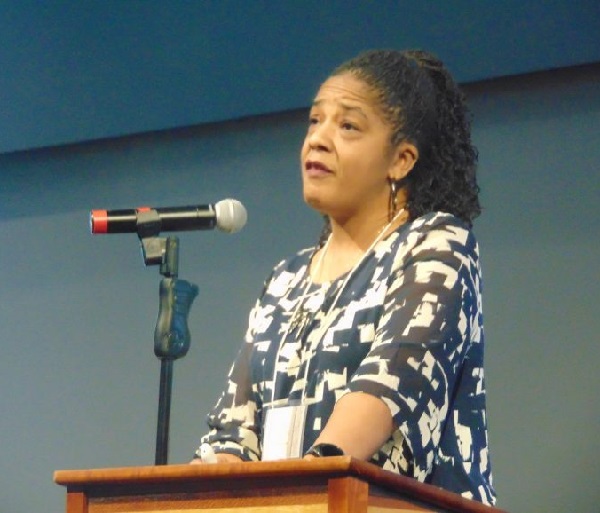DISCLAIMER
The information and materials accessed through or made available for use on any of our Sites, including, any information about diseases, conditions, treatments, or medicines, are for informational purposes only. The Content is not intended to be and is not a substitute for professional medical advice, diagnosis, or treatment, and your participation on our Sites does not create a healthcare professional-patient relationship. You should consult a doctor or other qualified health care professional regarding any questions you have about your health or before making any decisions related to your health or wellness. Call your doctor or 911 immediately if you think you may have a medical emergency.compose your message
message sent
email sent successfully
Trusted Resources: News & Events
Latest announcements and gatherings
Healthcare advocates aim to better inform community on sickle cell realities
One in 2,400 are born with sickle cell disease (SCD) in the U.S. As one of the most common inherited blood disorders, it is widely misunderstood.
Last month, the Minnesota Sickle Cell Coalition — comprised of patients, doctors, healthcare providers, and advocates — co-sponsored a Sickle Cell Disease Stakeholder Forum at Sanctuary Covenant Church in North Minneapolis. Approximately 60 healthcare professionals and others attended the Dec. 10 event to not only help improve care for those afflicted by the disease but also to increase awareness of the disease, screening and healthcare disparities.
SCD is a group of inherited red blood cell disorders including Sickle Cell Anemia (Hgb SS Disease), Hemoglobin SC Disease, and Hemoglobin Sickle Beta Thalassemia. People with sickle cell disease produce abnormal hemoglobin (Hgb S), which can interrupt blood flow and prevent oxygen from getting to important parts of the body. This can cause many potential health complications, including extreme pain, risk of stroke, and pulmonary hypertension.

 +myBinder
+myBinderRelated Content
-
people & placesLeigh Ann Wilson, LCSWLeigh Ann Wilson is a licensed clinical ...
-
people & placesNew York State Sickle Cell Advocacy Network (NYSSCAN)New York State Sickle Cell Advocacy Netw...
-
Community CenterSickle Cell Disease Management & Complications: Sophie Lanzkron MD of Johns HopkinsStuck on sickle cell disease? We hammer ...
-
education & researchSickle Cell Disease (SCD)Sickle cell disease (SCD) is a group of ...
-
news & events2020 RARE on the Road – RaleighThe EveryLife Foundation for Rare Diseas...
-
Community Center@SCDAAorgThe Sickle Cell Disease Association of A...
-
Community CenterToday’s Faces of Sickle Cell Disease: Carolyn Rowley, PhDCarolyn Rowley is a psychologist, patien...
send a message
To improve your experience on this site, we use cookies. This includes cookies essential for the basic functioning of our website, cookies for analytics purposes, and cookies enabling us to personalize site content. By clicking on 'Accept' or any content on this site, you agree that cookies can be placed. You may adjust your browser's cookie settings to suit your preferences. More Information
The cookie settings on this website are set to "allow cookies" to give you the best browsing experience possible. If you continue to use this website without changing your cookie settings or you click "Accept" below then you are consenting to this.
Support for this site is provided by

This platform is made possible through a partnership with the Sickle Cell Disease Association of America, Inc. (SCDAA) and its member organizations. SCDAA's mission is to advocate for people affected by sickle cell conditions and empower community-based organizations to maximize quality of life and raise public consciousness while advancing the search for a universal cure.




